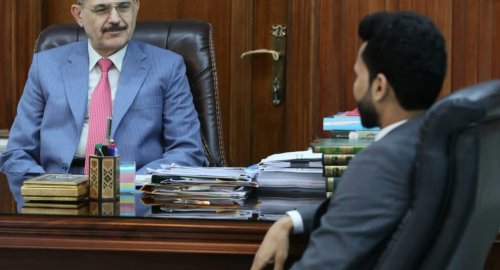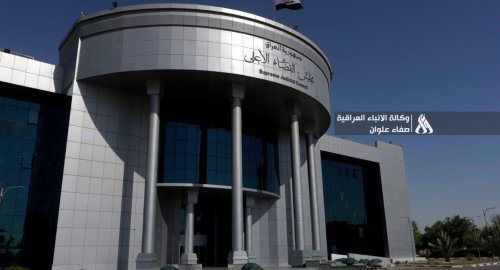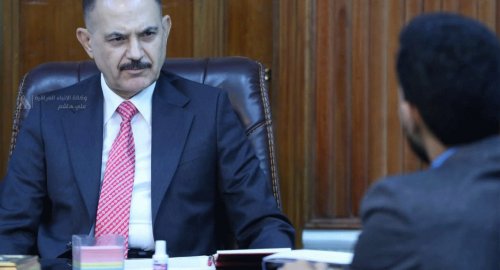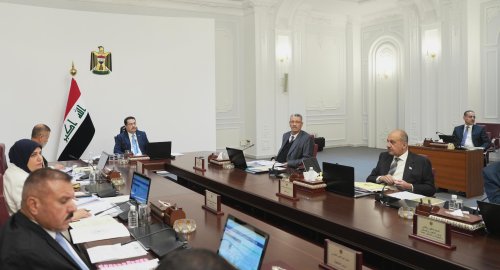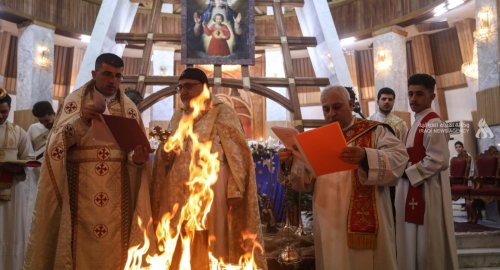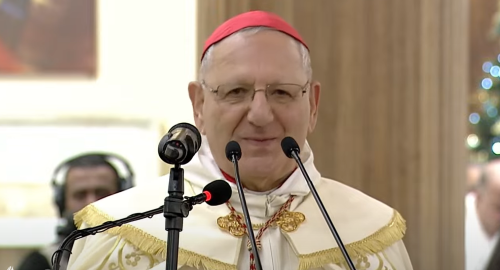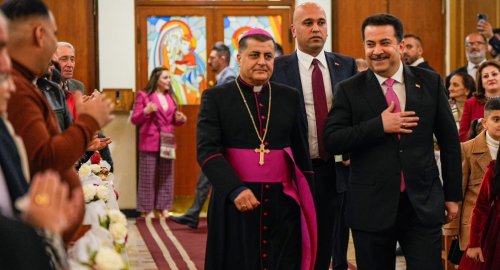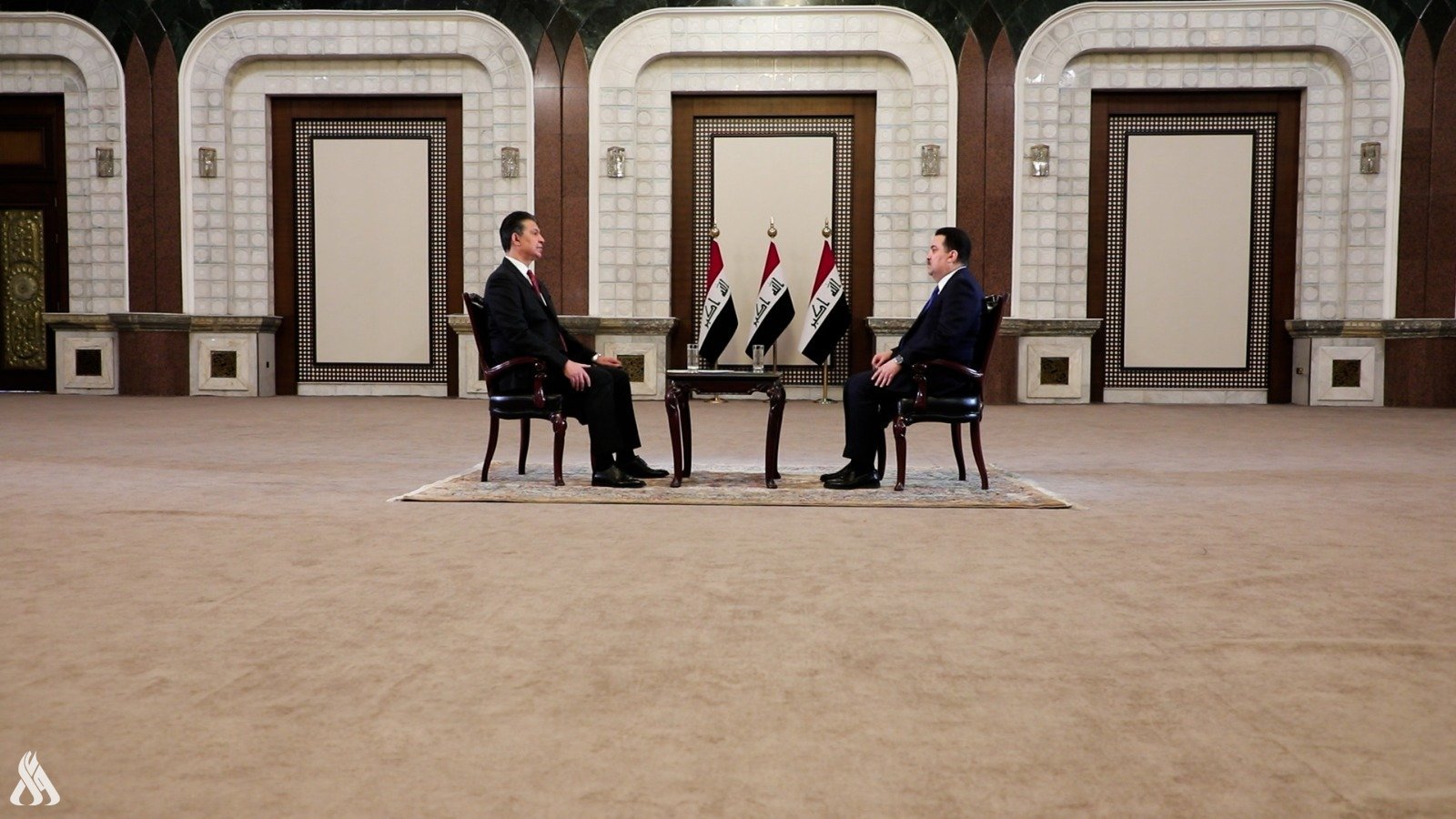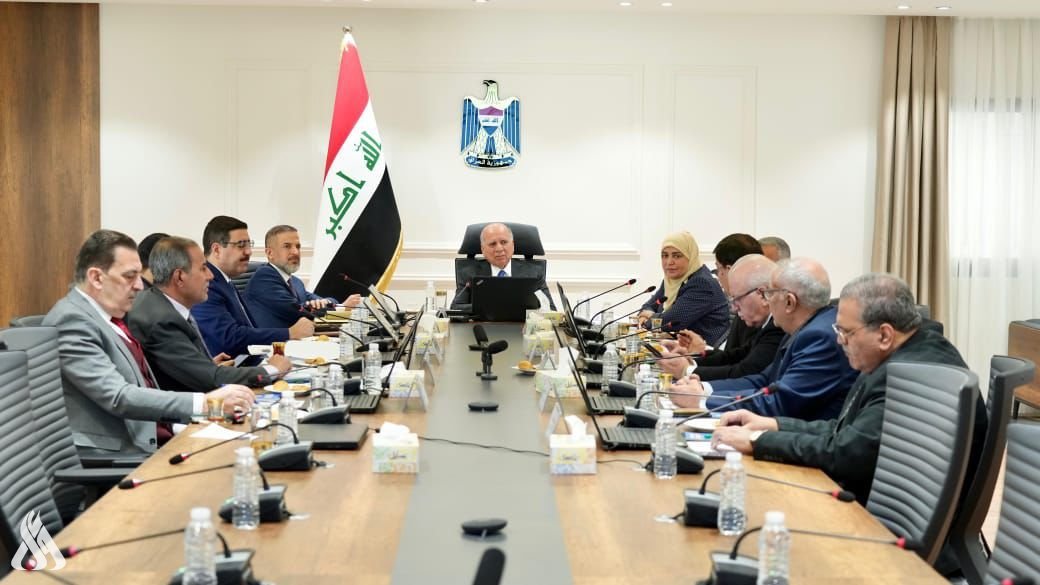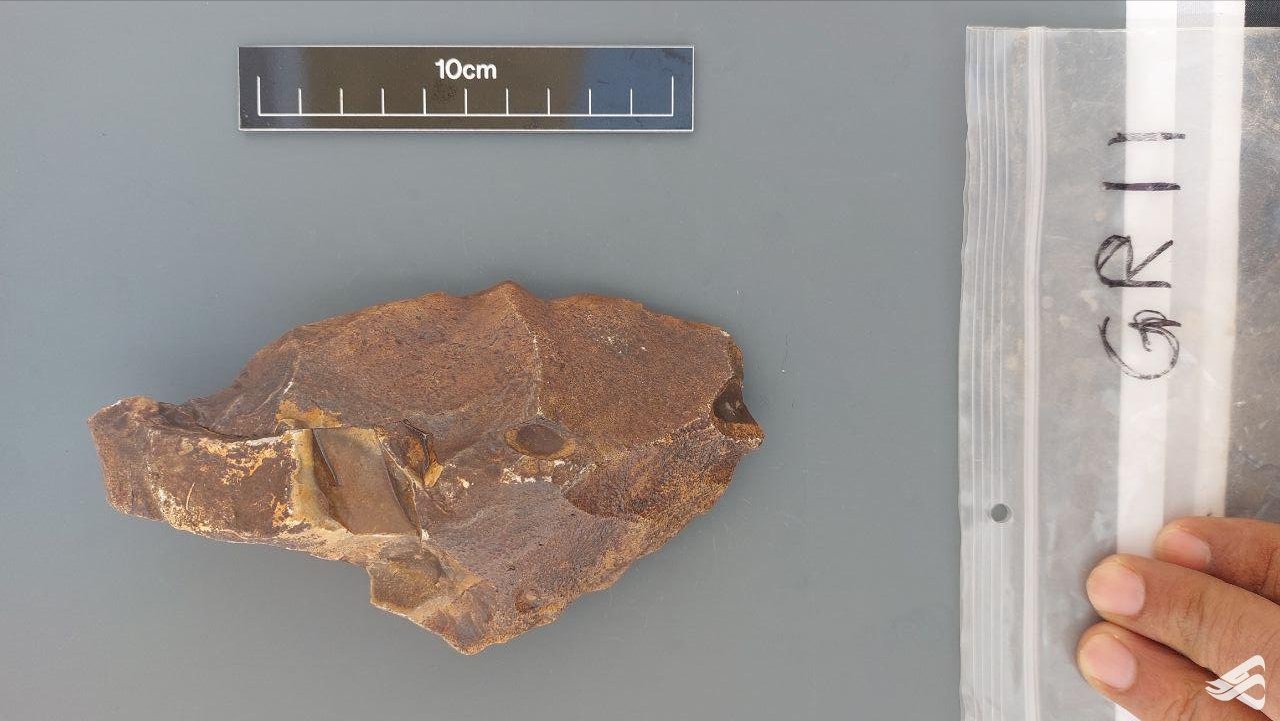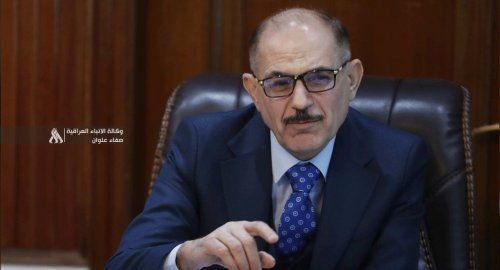
Democratic experience in Iraq guarantees participation of people in determining their destiny: FSC

- 4-01-2024, 11:53
INA- BAHDAD
Jassim Mohammed Aboud Al-Amiri, the President of the Federal Supreme Court, stated on Thursday that the Iraqi constitution gave citizens the freedom to determine their own present and future. He also lauded the government's establishment of the democratic system and the sacrifices made by the people of Iraq, taking into account the humanitarian effort and martyrdom of victorious commanders Abu Mahdi al-Muhandis and Qassem Soleimani.
Al-Amiri stated in an interview with the Iraqi News Agency (INA): "The world's peoples' constitutions are a real representation of all the positive and bad historical phases that these peoples underwent, as well as the suffering that peoples endured under the rule of oppressive regimes and, if they were exposed to it, the suffering they endured during the era of foreign occupation, since the occupier's purpose is to dominate and cause conflict and internal divides among the people of the same homeland for national or sectarian reasons."
"These constitutions also stand on the bright sides of these nations and the enormous sacrifices made by their sons, and these sacrifices have become the core ideals on which the present and future of peoples are constructed," he said. "These constitutions also represent a reflection of the jihad carried out by these peoples, whether against the tyrannical ruler or against the occupier who flouts morals and principles."
The Iraqi Constitution
"The Iraqi Constitution, which came into effect in 2005, is a very important document that contains meanings consistent with this country's past, present, and future. It also serves as an ideal model for all constitutional documents in the region," he continued. "This system of government defined the federal authorities and their competencies that are exercised on the basis of the principle of separation of powers, and this separation is based on integration and cooperation to serve the building of the state." The first article of the Iraqi Constitution states that the Republic of Iraq is one independent federal state with full sovereignty, a republican, representative, and democratic system of government; additionally, the constitution guarantees the unity of Iraq."
Provincial Elections
Al-Amiri commented on the most recent local elections, saying, "Article 122 of the constitution addressed the issue of governorate councils, stating that governorates that were not organized in a region should be given extensive financial and administrative powers to allow them to conduct their affairs in line with the administrative decentralization principle. Laws govern this, and the conclusion of council elections signifies Iraq is building constitutional institutions capable of erecting the right democratic system, and these democratic institutions will exercise their constitutional powers, as demonstrated by the recent governorates, which send a message to all other countries in the world.
"The holding of successful elections for successive electoral entitlements and provincial councils periodically presents three explicit and sure indications," he continued. First, Iraqi democracy is real and not merely ceremonial; second, the country's populace, government, and political currents are all focused on building a genuine democracy in Iraq based on the people's right to freely choose their representatives. Third, this democracy made sure that everyone in Iraq has access to the freedoms and public rights outlined in the Constitution."
He made note of the fact that "the Iraqi people's primary perception of these elections is that the Independent High Electoral Commission conducted them correctly, and everyone is praising the government for its outstanding success."
Services government
He stressed that "the current Iraqi government is heading in two directions, The first is providing services and completing large, medium and small projects that the people need and have been waiting for a long time this confirms the seriousness and determination of the government to move towards providing services, while in the other direction the government is keen on the necessity of integration in the democratic construction of Iraq.
People's right to choose their own representatives
Al-Amiri continued, “The democratic process in Iraq is being renewed on the basis of the principle of periodic elections, which is embodied in the elections for the Parliament and the provincial councils, and depends on the people being the source of authorities and having the right to choose their representatives through secret ballot, which brings about successive changes of governments after each parliamentary election, which confirms the periodicity of elections in the process electoral elections, and the government’s completion of the local elections confirms its keenness to complete the democratic construction.”
The President of the Federal Supreme Court pointed out that “the democratic experience in Iraq based on periodic elections that guarantee the participation of the people in determining their fate and future can be considered an ideal model in the region, and we believe that there is no democratic system like the one in Iraq in the Middle East region, and this is a great achievement that would not have been achieved if it were not for the blood of the Iraqi martyrs and the sacrifices made before and after 2003, the blood of the martyrs must be used to strengthen the democratic system on the basis of equality, equal opportunities, and a fair distribution of wealth among Iraqis without exception, regardless of nationality, sect, or any other reason.”
Victory leaders
Regarding the martyrs, the leaders of victory and the martyrs of Iraq, Al-Amiri said: “The Iraqi people made very great sacrifices in their struggle against the previous tyrannical regime that contributed to the removal of the regime, as well as in its war on terrorist gangs, also considering that “the martyrdom of the two great commanders Abu Mahdi Al-Muhandis and Qassem Soleimani represents the highest level of giving humanitarian effort, sacrifice, and the struggle against injustice, terrorism, tyranny, and this blood, through its giving, is what liberated the lands of Iraq from terrorism.”
The democratic experience in Iraq
Al-Amiri stressed that "the events that Iraq had previously witnessed greatly affected the process of building the state, reflected badly on the administrative system, and allowed the corruption, both financial and administrative."
He continued, "There are many countries trying to belittle the democratic experience in Iraq for one reason or another," stressing that "Iraqi democracy is measured on the basis of free and fair elections and guaranteeing the rights and freedoms enjoyed by the Iraqi people, who enjoy freedom of thought and belonging, including politics and freedom of the press the freedom to demonstrate, assemble, express opinions, and criticize the government and Parliament, provided that order, security, public morals, and the nature of the democratic system are not disturbed these achievements were achieved thanks to the sacrifices of Iraqis who were deprived of them during the dictatorial regime.”
Regarding the authorities in Iraq and the principle of separation between them, Al-Amiri explained that “there are three authorities in Iraq, the legislative, the executive and the judicial, which perform their duties on the basis of the principle of separation of authorities, and this separation represents the essence of the democratic process the independence of the judiciary in Iraq is real and is not linked to the executive and legislative authorities in Iraq, and the Federal Supreme Court performs its constitutional powers in accordance with what is specified in Article 93 of the Constitution, with complete independence and of its own will, without being subject to any of the authorities it can return the legislative and executive powers to the limits of their constitutional powers if these powers are exceeded, and the Federal Court also has constitutional jurisdiction to consider issues arising from the application of federal laws, procedures, regulations and instructions issued by the federal authority, and to act in accordance with what serves the highest interest of the people and the nation."
He stressed that "Iraq was able, based on what was stated in the Constitution, to build constitutional institutions in a correct manner, represented by the government, parliament, judiciary, the Federal Court, the Independent High Electoral Commission, the Integrity Commission, the Central Bank, and the Media and Communications Commission, in addition to the rest of the constitutional institutions these institutions are independent federal constitutional and not authorities because the federal authorities Defined under Article 47 of the Constitution as legislative, executive and judicial."
Christmas Mass atmospheres in Baghdad, Iraq
- Local
- 09:46
PM Al-Sudani participates in the Christmas Eve Mass
- politics
- 09:14
'Iron Man’ suit for paralyzed patients to walk and climb stairs
- Multimedia
- 09:07
US Central Command: We killed ISIS terrorist leader Abu Yusuf in Syria
- International
- 24/12/20
Liverpool compete with Real Madrid to sign Olympique Lyonnais star
- Security
- 24/12/19
The discovery of Pre-Christian human settlement sites in Iraq
- Investigations and reports
- 24/12/18
